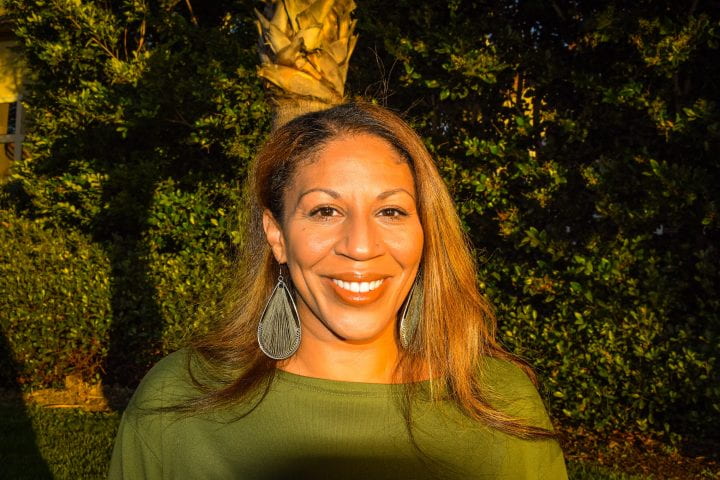The important role of nurses working on the frontlines of the COVID-19 pandemic—and the heavy impact that work had on their own well-being—is well known in the annals of public health research. But the experiences of California school nurses during the pandemic have received little attention. In a recent study, the Sue & Bill Gross School of Nursing’s Nakia C. Best, PhD, RN, and Eden Donahue, DNP, RN, PHN, NCSN, of the School Nurses of California Foundation, collaborated to shed light on this important and often-overlooked subject.
The grant-based study, titled Exploration of California School Nurse Perspectives on the Impact of COVID-19, was published in February 2023. Based on interviews with school nurses from around the state, it aimed to describe the impact of COVID-19 on California school nurses and school health services, while also addressing crucial questions about the role of school nurses in mitigating health and academic challenges, applying their unique skills, mitigating the impact of COVID-19 , and coping with their own challenges.
The research team conducted interviews with 19 school nurses via Zoom between August and September 2021. The participants, predominantly female, highly educated, and trained with extensive experience, provided insights into their roles and experiences during the unprecedented challenges posed by the pandemic.
“Most people don’t really know what school nurses do,” said study co-author Best. “It’s not just putting on Band-Aids. We wanted to tell stories of what schools were going through, how schoolchildren were impacted, and the moral distress felt during the pandemic by school nurses.”
According to Best, study co-author Donahue of the School Nurses of California Foundation provided critical assistance in getting nurses to open up about their experiences. “Working with this foundation was really helpful,” Best said. “They are really active with school nurses, and because we were partnering with them, we were able to get the call out, and people answered.”
Donahue echoed that feeling. “In reflecting on the initial meetings, one thing that helped establish a partnership was a collaborative attitude from the UCI researchers,” she said. “There was true collaboration.”
During the interviews, school nurses revealed the challenges they faced during the pandemic. They discussed their roles in COVID-19 mitigation, their collaboration with school administrators, and the disruptions to care. Importantly, the study delved into the moral distress experienced by school nurses – the emotional toll of feeling like their efforts were never enough.
The study revealed disparities between school districts with varying resources, impacting the workload and burnout levels of school nurses. Despite the hardships, the resilience of school nurses shone through. Some were even more driven to continue their work, viewing the study as a therapeutic outlet to share their experiences. Their input, says Best, has helped fill in the gap of knowledge about how the pandemic affected school nurses.
Many of the nurses interviewed for the study were grateful for the opportunity to talk about their experiences during the pandemic for the first time. Among the themes they raised in their responses were the challenges of working with school administrators to determine how to respond to disruptions posed by the pandemic and the “moral distress” they felt, given the fact that nobody, from administrators to teachers to parents, had any previous experience dealing with a health emergency of such proportions. “Nobody was prepared for COVID,” Best explained. “So school nurses were working really hard, but feeling like it wasn’t enough and the work was never done.”
“Everyone was talking about the mental health of nurses in hospitals,” she explained, “but we wanted to tell that story from the perspective of school nurses.”
In the end, she added, the nurses in the study were glad to share their experiences for the study. “It was cathartic for them,” Best concluded. “They really appreciated being able to talk about what happened at their schools.”




Leave A Comment